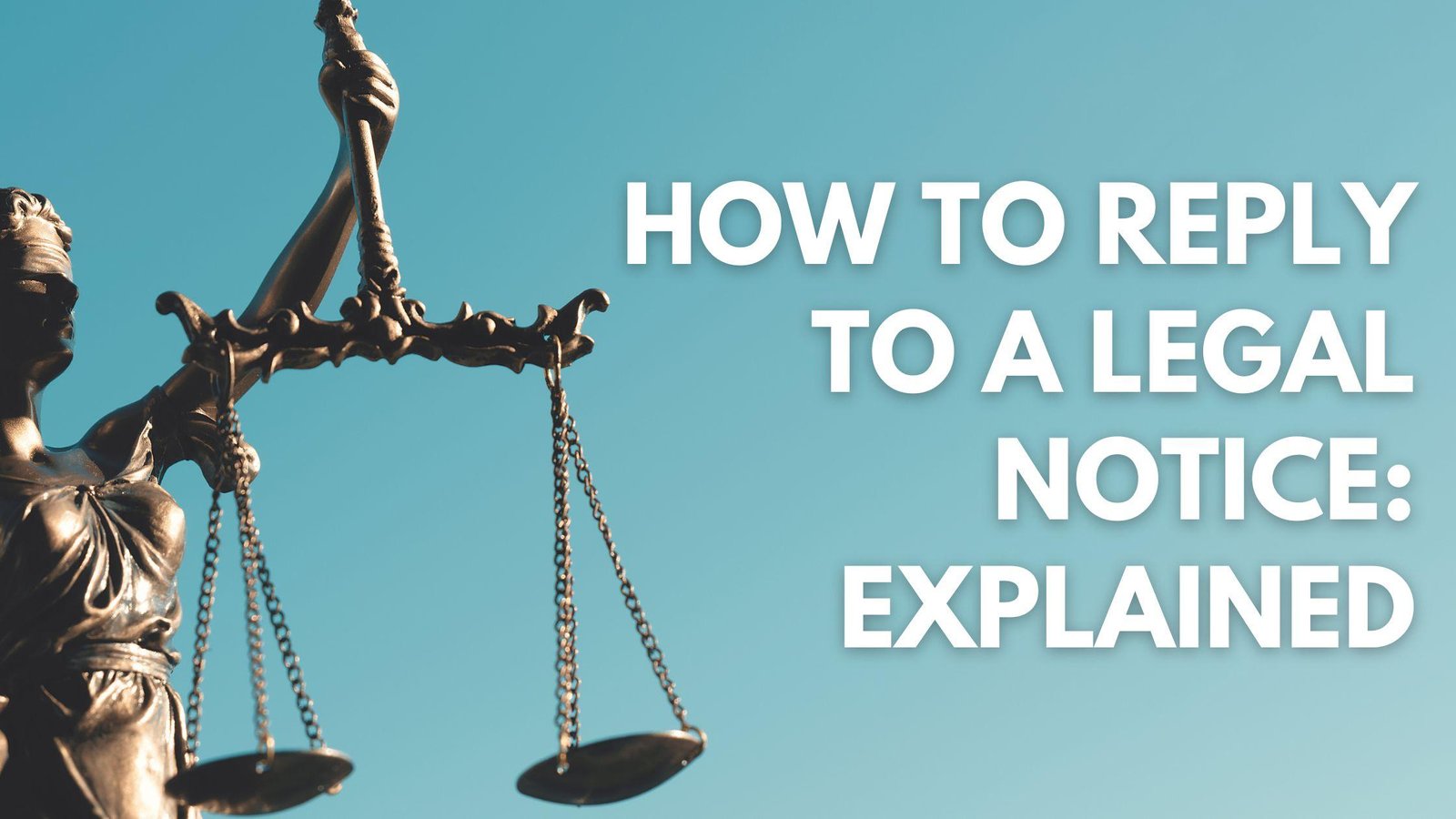
How To Reply To A Legal Notice: Explained
Receiving a legal notice can be intimidating. After all, it is a formal communication from an individual, company, or government agency indicating that legal action may be taken against you. That is why understanding how to respond appropriately to such legal notice is crucial. But fret not if you’re unaware of it, as this article will guide you through the essentials of replying to a legal notice.
Here, we will start by defining what a legal notice is, then explore the different types of legal notices you might encounter, and finally, provide a step-by-step approach to the right way to respond to a legal notice, as being informed can help you navigate the situation calmly and effectively.
What is a Legal Notice?
Let’s begin with the basics.
A legal notice is an official written communication that signifies the intention to undertake legal proceedings against the recipient. It serves as a warning or a final reminder before initiating a lawsuit. Legal notices are often used to resolve disputes without going to court. They can be issued for various reasons, such as breach of contract, non-payment of dues, defamation, or property disputes. Receiving a legal notice does not automatically mean you will be sued. It is an opportunity to settle the matter amicably before escalating to the courts.
Types of Legal Notice
Legal notices can vary depending on the nature of the dispute. Here are some common types:
1. Contractual Disputes: These notices arise from breaches of contract terms. They are common in business agreements, leases, and service contracts.
2. Property Disputes: These include notices related to boundary disputes, unlawful possession, or violation of property rights.
3. Non-Payment of Dues: These notices are issued for unpaid debts, whether from loans, services rendered, or goods supplied.
4. Employment Issues: Notices in this category address matters such as wrongful termination, unpaid wages, or breach of employment contract.
5. Defamation: Such notices are sent when one party feels false statements made by another have damaged their reputation.
6. Consumer Complaints: These are complaints made by consumers to businesses about issues such as defective products, poor service, or unfair trade practices.
7. Family Disputes: These include notices related to divorce, child custody, or alimony issues.
What is the Right Way to Respond to a Legal Notice?
Responding to a legal notice promptly and appropriately is crucial. Here’s a step-by-step guide:
1. Read the Notice Carefully: The first step is to read the notice thoroughly. Understand the allegations, demands, and the time frame given for a response. Note any dates mentioned and the sender’s details.
2. Seek Legal Advice: Consult with a lawyer. Legal jargon can be complex, and a lawyer can help you understand the implications of the notice. They can also guide you on the appropriate legal response.
3. Gather Relevant Documents: Collect all documents related to the dispute. These could include contracts, emails, receipts, or any other evidence that supports your case. Organize them neatly for easy reference.
4. Prepare Your Response: Your lawyer will help draft a formal reply. The response should address each point raised in the notice. If you deny the allegations, provide evidence to support your position. If you admit to some claims, explain the circumstances and propose a resolution.
5. Maintain Professional Tone: Your response should be polite and professional. Avoid any language that could be perceived as confrontational or aggressive. This can help negotiate an amicable settlement.
6. Propose a Solution: If you are open to settlement, suggest a resolution. This could be a payment plan, rectification of the breach, or any other compromise that can resolve the issue without going to court.
7. Send the Response: Reply within the stipulated time frame. Use a reliable method of delivery that shares acknowledgement of receipt, such as registered mail or courier.
8. Keep Records: Maintain copies of your response and proof of delivery. This documentation may be needed if the dispute escalates to court.
9. Follow-Up: After sending your response, follow up with the sender to confirm receipt and discuss the next steps. This shows your desire to resolve the issue amicably.
10. Prepare for Further Action: Depending on the sender’s response, be prepared for further legal action. Continue to work with your lawyer to protect your interests.
Bottom Line
Responding to a legal notice can be tough, but understanding the process can make it manageable. A legal notice is not the end of the road but a chance to address and potentially resolve a dispute without resorting to court proceedings. Knowing the types of legal notices and the right way to respond can help you navigate the situation effectively. Remember to seek legal advice, maintain professionalism in your communication, and keep thorough records. By following these steps, you can address the notice confidently and work towards a resolution that protects your interests.
Are you looking for reliable legal services? If yes, Innerwork Advisors offers a unique blend of expertise and personalized support for those looking for reliable legal advice and private investigation services. Their team of legal advisors is equipped to handle a variety of legal issues, ensuring you receive the best possible recommendations tailored to your needs.
Also Read: Understanding Family Law And Its Types






